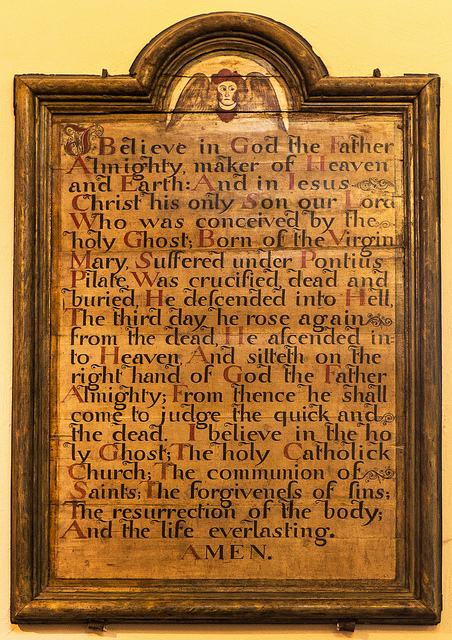 Uncategorized
Uncategorized
In light of the multiple thousands of denominations existing over and against Je...
 Uncategorized
Uncategorized
By: ECO Team
In January 2012, at ECO’s constituting convention, it was announced that, going forward, ECO would be bound by a book of confessions consisting of:

It was a familiar list, since these are the confessional statements that make up the PC(USA)’s Book of Confessions, at least for now.
Not everyone in ECO has been a big fan of the decision to keep all these confessions for our new denomination. After all, don’t we want more differentiation from the PC(USA)? Some of the confessions on the list are much more popular than others. Did we really have to keep them all? Why did we make this decision?
Primarily, because as of January 2012, every officer coming into ECO had already made a vow before God and His people to receive and adopt the essentials of the Reformed faith as expressed in this particular collection of documents. That’s an important vow, and being released from it is not something that should happen casually. Changing our confessional commitments is not something to be decided by a board or a committee. Such change must be determined by a duly constituted denomination at a deliberative assembly after prayerful study. Only now are we coming to the point as a community where we have the structure and resources for that kind of careful deliberation. The possibility of modifying the list has always been envisioned as something we would think about together as a covenant community.
In what ways should the list be modified? That’s a big question. Personally, I hope we will always maintain a diverse collection of confessions, not theologically diverse, but culturally and historically diverse. People in the Presbyterian and Reformed tradition have always been marked by the impulse to articulate our faith in a confession that applies our understanding of Scripture to the questions of our own day. So having a book of confessions, rather than only one or two, means we are listening to the working out of our shared faith in a variety of cultural and historical contexts. It’s a reminder that the Presbyterian and Reformed tradition is bigger than any one time or place. That’s very helpful as we try to apply our faith to our own culture. At some point it might even inspire us to continue the project of confession by writing something of our own.
In my work with different churches around ECO, I have seen a lot of documents prepared by congregations that are in discernment: lists of pros and cons between staying and going, or between ECO and the EPC. It’s interesting to see how ECO’s confessional commitments are reflected on those lists. More often than not, it’s seen as a plus to have a book of confessions rather than just Westminster. But not always. There are congregations that are drawn to the perceived stability of a single confession, but there are others that like the idea of affirming a confessional tradition that plays out in different places and different eras. This strikes me as one of those genuine differences that helps to explain why both ECO and the EPC need to exist.
Even if we like the idea of a book of confessions, there’s room for lots of conversation about what should be in the book. This year at Synod, the theology task force will be hosting several sessions to begin that conversation. I hope to see you all there!
 Uncategorized
Uncategorized
In light of the multiple thousands of denominations existing over and against Je...
 Uncategorized
Uncategorized
My first pastoral call was to the First Presbyterian Church of Winnfield, a litt...
 Uncategorized
Uncategorized
This semester, I’m teaching “The Holy Spirit and the Church.” Our primary textbo...